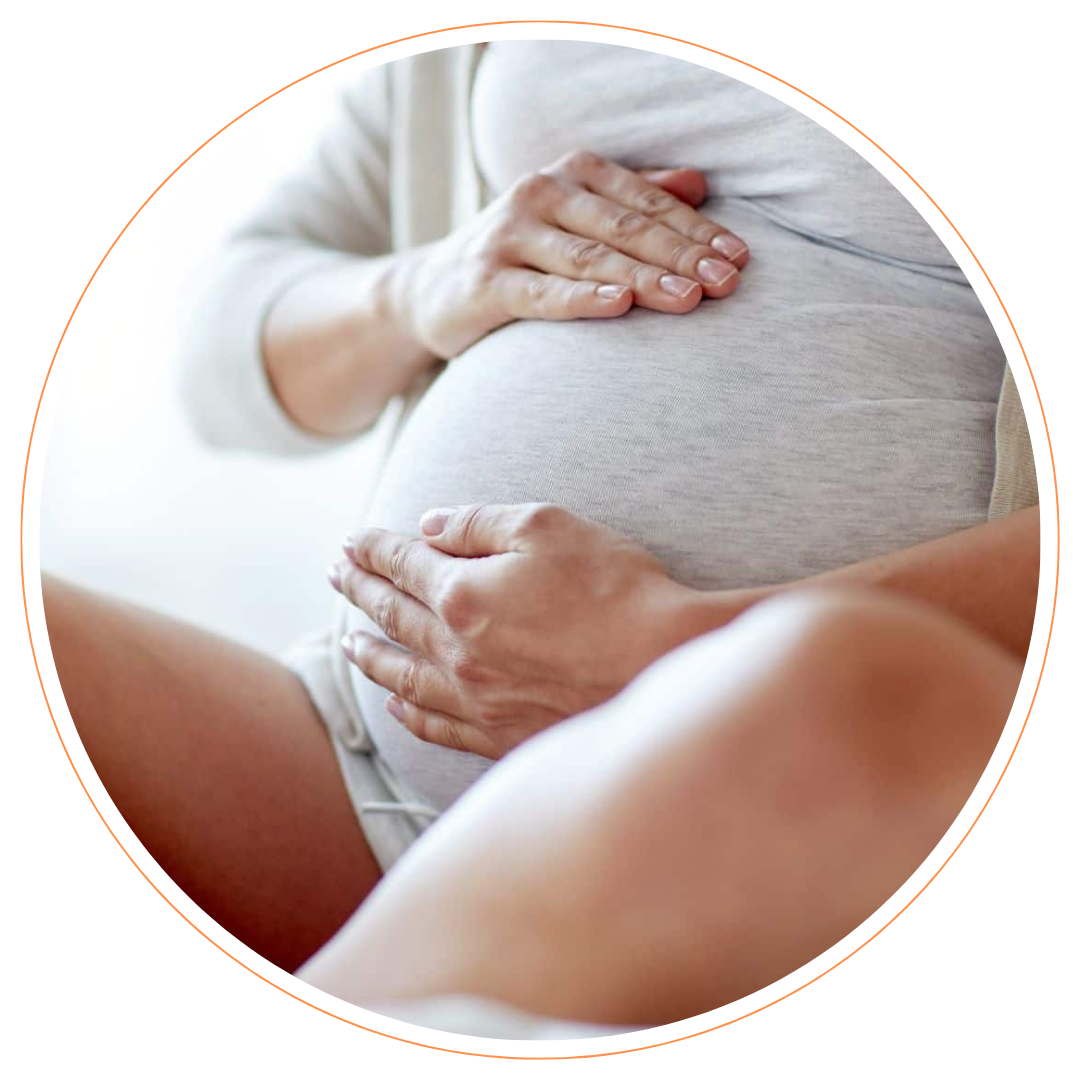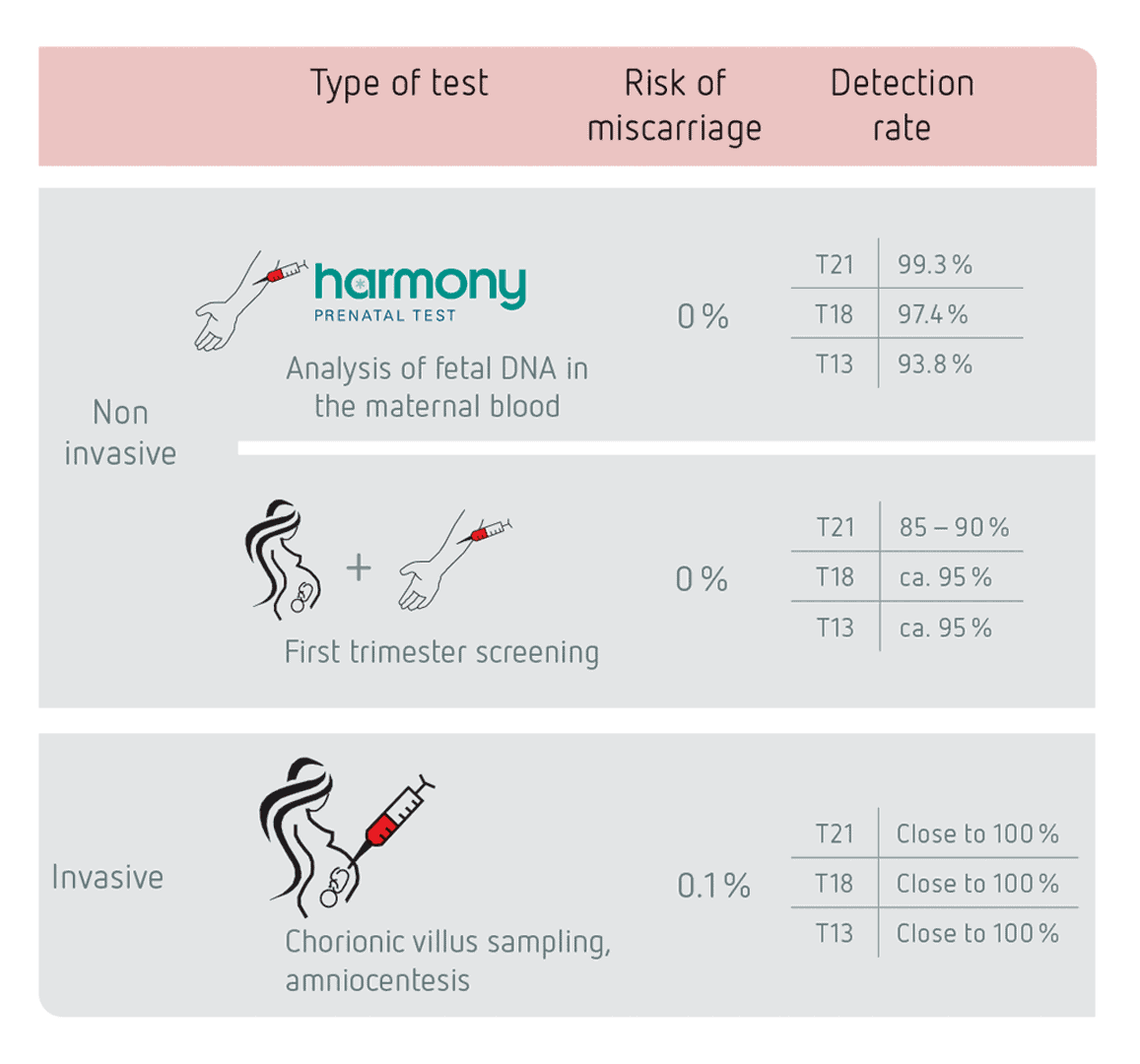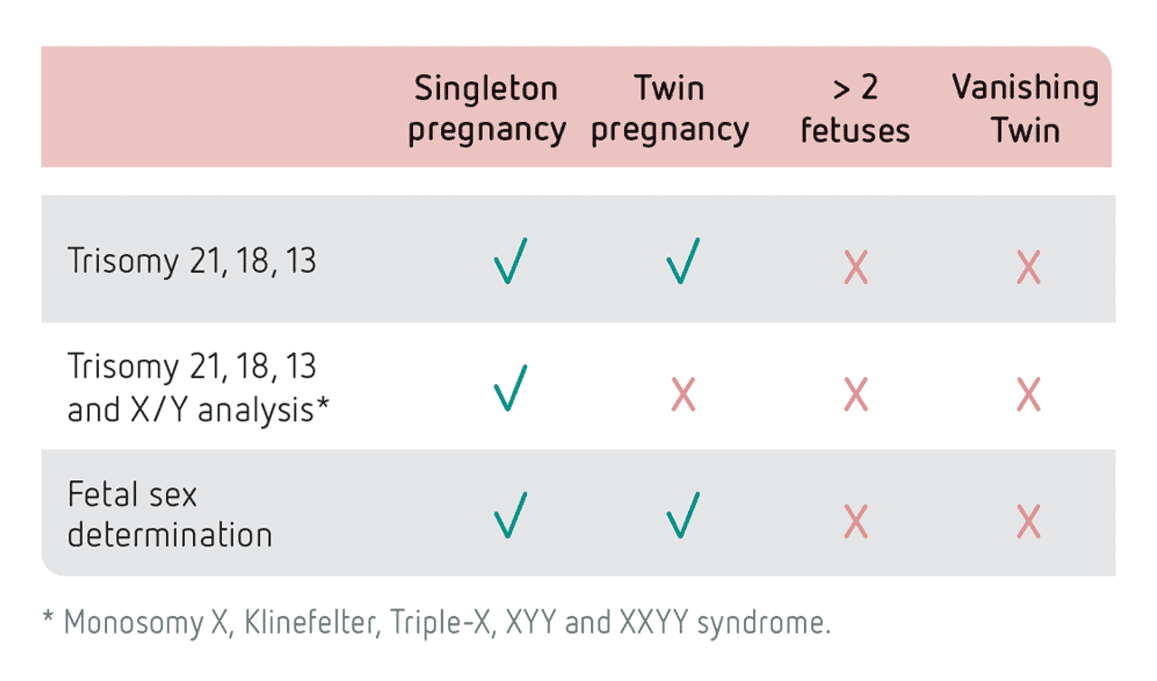Harmony NIPT Test


What Harmony Screens For
-
Trisomy 21 (Down syndrome)
-
Trisomy 18 (Edwards syndrome)
-
Trisomy 13 (Patau syndrome)
-
Sex chromosome conditions* (optional)
-
Fetal sex determination (optional)
Sex chromosome conditions include Monosomy X (Turner syndrome), Klinefelter syndrome (XXY), Triple X (XXX), XYY, and XXYY.
What is the Harmony® Test?
The Harmony® Test is a safe, non-invasive prenatal screening test that looks for certain chromosomal conditions in a developing baby. It works by analysing small fragments of your baby’s DNA that naturally circulate in your blood during pregnancy.
The test can be performed from 10 weeks of pregnancy and provides early, reliable insights into your baby’s health — without any risk to your pregnancy.
Understanding trisomies
In a healthy baby, genetic information is carried in 23 pairs of chromosomes. A trisomy occurs when a chromosome is present three times instead of twice.
The Harmony® Test screens for:
-
Trisomy 21 (Down syndrome): the most common chromosomal condition, affecting around 1 in 830 newborns. Children with Down syndrome may experience developmental delay and can also have associated medical conditions, such as congenital heart disease. With advances in care, the average life expectancy today is around 60 years.
-
Trisomy 18 (Edwards syndrome): a rare condition that affects about 1 in 5,000 newborns. It is associated with serious medical complications, and sadly many affected babies do not survive beyond their first year.
-
Trisomy 13 (Patau syndrome): a very rare condition affecting about 1 in 16,000 newborns, also linked to multiple medical issues and a high risk of miscarriage.
The chance of a trisomy increases with maternal age, which is why many doctors recommend NIPT for women aged 35 and older — though any expectant parent can choose to have the test for reassurance.


SAFE, SIMPLE, AND MORE ACCURATE THAN TRADITIONAL SCREENINGHow does the Harmony® Test compare to other prenatal tests?
The Harmony® Test detects the most common chromosomal conditions in a developing baby using a simple blood sample from the mother. Unlike invasive diagnostic methods such as amniocentesis or chorionic villus sampling (CVS), Harmony is completely safe and carries no risk of miscarriage.
When compared with traditional first-trimester screening (ultrasound and hormone analysis), Harmony offers a much higher accuracy for detecting Trisomy 21 (Down syndrome). This means fewer false positives and greater reassurance for expectant parents.

THE SCIENCE BEHIND NIPTHow does the Harmony® Test work?
During pregnancy, small fragments of your baby’s DNA — called cell-free fetal DNA — naturally pass from the placenta into the mother’s bloodstream. From around 10 weeks of pregnancy, there is usually enough of this DNA in the mother’s blood to be analysed.
By taking a simple blood sample, the Harmony® Test can analyse this DNA to look for certain chromosomal conditions.
It’s important to remember that while Harmony is highly accurate, it is still a screening test. This means that rare false positive or false negative results can occur, and follow-up diagnostic testing may sometimes be recommended.

ONE OF THE MOST STUDIED AND TRUSTED NIPT TESTS WORLDWIDEPerformance of the Harmony® Test
High detection rates
Published studies show that Harmony achieves:
-
99.3% detection rate for trisomy 21 (Down syndrome)
-
97.4% detection rate for trisomy 18 (Edwards syndrome)
-
93.8% detection rate for trisomy 13 (Patau syndrome)
Exceptionally low false positives
Harmony has a false positive rate of only 0.04% for trisomy 21, and just 0.02% for trisomy 18 and 13.
This is around 125 times lower than traditional first-trimester screening, which typically has a false positive rate of about 5%.
Backed by expert clinical teams
Harmony is supported by highly qualified specialists in genetics, laboratory medicine, obstetrics, and gynaecology, ensuring that results are both accurate and clinically meaningful.
SUITABLE FOR MOST PREGNANCIESWho can take the Harmony® Test?
The Harmony® Test can be used in both singleton and twin pregnancies, regardless of how the pregnancy was conceived or the origin of the egg.
A few important notes:
-
If your pregnancy involves an egg donation, this must be communicated when ordering the test, as results cannot be guaranteed otherwise.
-
Harmony cannot be performed in cases of triplets (or more), or when there is a vanishing twin.
For most expectant parents, Harmony offers a safe and reliable way to gain early insight into their baby’s health.




TRUSTED CARE, CLOSE TO HOMEOur Clinic Network



